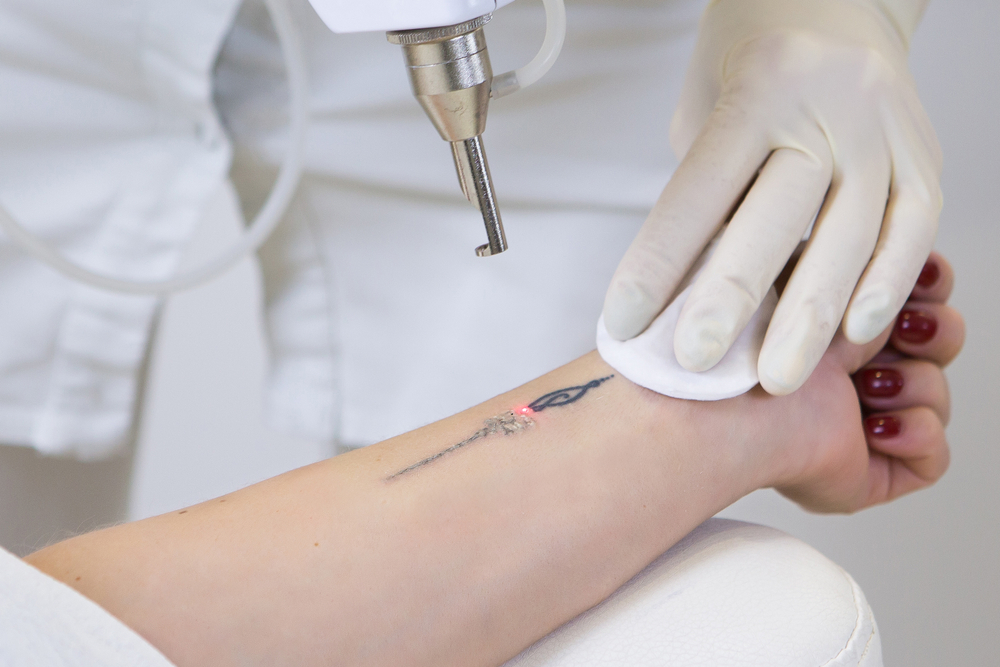Discover professional tattoo removal services, offering both complete and partial removal options. Experienced team utilizes cutting-edge techniques and advanced technology to safely and efficiently remove tattoos, providing effective solutions tailored to your specific needs.
Tattoos are a popular form of body art, serving as a means of self-expression for many individuals. However, there may come a time when one wishes to remove or alter their tattoo. This desire could arise due to a change in personal preference, a need to maintain a professional image, or other reasons. Fortunately, advancements in technology have made it possible to either completely or partially remove tattoos through laser treatment.

How Does the Laser Remove Tattoos?
Tattoo removal predominantly involves the use of laser technology. The laser works by emitting short pulses of intense light that are selectively absorbed by the tattoo’s ink. This light energy is converted into heat, which breaks down the ink particles into smaller fragments. These fragments are then naturally eliminated by the body's immune system over time. The lasers are designed to target the pigment of the tattoo without damaging the surrounding skin and tissues. The effectiveness and safety of the laser treatment largely depend on the type of laser used and the skill of the professional conducting the procedure.
How Many Sessions Does It Take to Completely Remove a Tattoo?
The number of sessions required to completely remove a tattoo varies depending on several factors. These include the size, location, color, age, and depth of the tattoo, as well as the individual's skin type, health status, and lifestyle habits. Typically, professional tattoos may require six to twelve sessions, while amateur tattoos often need fewer sessions. Sessions are usually spaced four to eight weeks apart to allow the body sufficient time to remove the ink fragments and heal in between treatments.
What are the Benefits of Partial Removal?
Partial tattoo removal is a viable option for those looking to lighten a tattoo rather than completely eliminate it. This process often requires fewer sessions, making it a more cost-effective solution. The primary benefit of partial removal is that it allows for a more effective cover-up. By lightening the existing tattoo, a new design can be more easily applied over the top, offering more options for the tattoo artist and client. Partial removal also reduces the risk of skin damage and can result in a faster healing process.
How Does One Care for Their Tattoo to Promote Healing In Between Sessions?
Tattoo aftercare is crucial to promote healing and achieve optimal results. After each session, the treated area should be kept clean and dry to prevent infection. Application of a prescribed ointment and a bandage may be recommended. Direct sunlight, rigorous activities, swimming, and hot tubs should be avoided until the area is fully healed. Maintaining a healthy lifestyle, including proper hydration and nutrition, can also enhance the body's ability to eliminate the ink fragments and heal the skin.
What Are the Average Costs?
The cost of tattoo removal varies widely depending on the size, colors, and complexity of the tattoo, as well as the number of sessions required and the geographical location of the clinic. On average, the cost can range from $200 to $500 per session. Most clinics offer package deals for multiple sessions, which can lead to considerable savings. It's important to have a detailed consultation with the tattoo removal specialist to understand the total cost involved before starting the treatment.
Laser tattoo removal is a safe and effective solution for those wishing to erase or modify their tattoos. While the process can be time-consuming and costly, the ability to remove an unwanted tattoo can provide significant psychological and aesthetic benefits. Partial removal offers a cost-effective alternative for those planning a cover-up tattoo. Proper aftercare is vital to promote healing and achieve the best results. Before embarking on the tattoo removal journey, it's important to consult with a professional to understand the process, costs, and expected outcomes thoroughly.